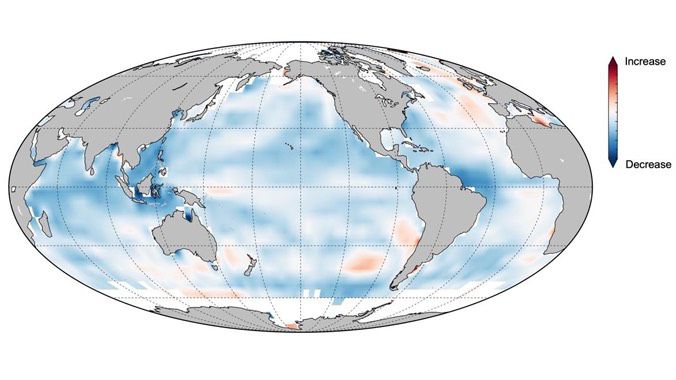HONOLULU — Scientists have long understood that oceans have their own kind of memory, a persistence of temperature that helps in predicting overall ocean conditions. More recently, however, they have observed signs that the world's oceans are now experiencing their own kind of amnesia.
According to a study co-authored by University of Hawaii atmospheric scientist Fei Fei Jin, the troubling loss of memory is likely caused by global warming.
The study, “Global Decline in Ocean Memory Over the 21st Century,” is published in the journal Science Advances.
Jin and a team of scientists, including lead author and Farallon Institute researcher Hui Shi, examined future projections from the latest generation of Earth System Models and found that ocean memory decline was a collective response to human-induced warming. As greenhouse gas concentrations continue to rise, they warn, memory decline will be increasingly evident.
“We discovered this phenomenon by examining the similarity in ocean surface temperature from one year to the next as a simple metric for ocean memory,” said Shi. “It’s almost as if the ocean is developing amnesia.”
As the team notes, ocean memory is related to the thickness of the uppermost layer of the ocean, known as the mixed layer. Deeper mixed layers have greater heat content, which supports memory. However, the mixed layer over most oceans will become shallower in response to continued global warming, resulting in a decline in ocean memory.
The thinning of the mixed layer increases random fluctuations of the sea surface temperature, making predictions more difficult.
“Reduced ocean memory together with increased random fluctuations suggest intrinsic changes in the system and new challenges in prediction under warming,” Jin said.
Ocean amnesia might impact management of marine ecosystems, including fisheries.
Without predictable sea-surface temperatures, forecasters might also find it more difficult to determine the likelihood of precipitation and extreme weather events, the researchers said.
Michael Tsai covers local and state politics for Spectrum News Hawaii.









